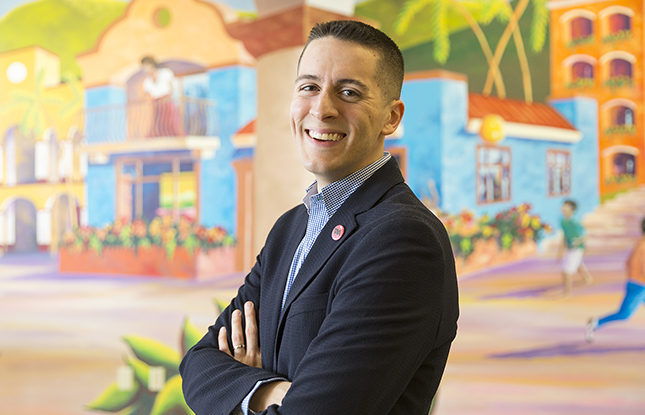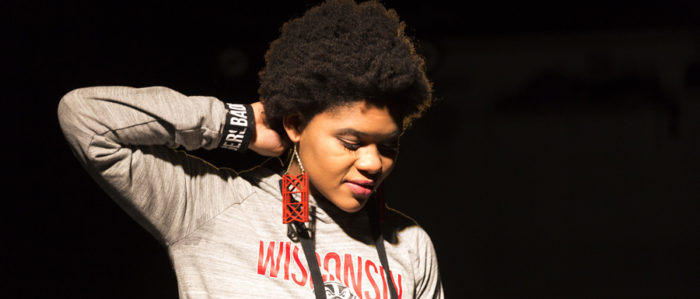The son of a tradesman father and a mother who assisted dislocated workers, Sergio González grew up in a tightly knit Latino community in Milwaukee. Surrounded by families like his, whose relatives lived in Mexico before moving to Wisconsin, he spent his childhood going to school and church and accompanying his activist parents at marches and protests.
“As a Wisconsin native, I never felt this wasn’t a place for me,” he says. Yet he knows not all Latinos in the state feel the same way. Immigrants from Mexico have had drastically different experiences since they began arriving in the early 20th century, and González traces their diverse history in Mexicans in Wisconsin.
The book, published in late 2017 by the Wisconsin Historical Society Press, chronicles the workers who came to take jobs in railroads, factories and agricultural fields, as well as the families that arrived as political refugees from the Mexican Revolution and the generations that followed and have contributed to Wisconsin’s economic, cultural and religious landscape.
Along the way, González illuminates the stories of people like Arturo Morales, who opened the state’s first Mexican grocery in 1925, influential 1960s and ’70s community activist Juanita Renteria and modern-day poets Oscar Mireles and Brenda Cárdenas.
Enriching research with individuals’ stories is a hallmark of González’s work, in large part because this history is personal to him. “I’m a first-generation Mexican-American, born and raised in Milwaukee,” he says. “When I made the decision to go back to grad school, I wanted to study something connected to my community.”
That community is vibrant and growing. While Latinos made up just 2 percent of Wisconsin’s population in 1990, their number rose to 6.3 percent in 2013, González writes. Projections show the state’s Latino population will reach nearly 1 million by 2060.
With an interest in sharing the history of Wisconsin’s Latino communities, González returned to UW-Madison, where he had earned undergraduate degrees in history, Spanish and secondary education in 2010. As a graduate student he’s delved specifically into religious spaces, where connections have long formed among Latinos as well as with other groups.
It’s incumbent upon me to continue to open doors for others as my mentors, advocates and supporters did, and continue to do, for me
His focus has already garnered accolades. His master’s thesis, which explored Milwaukee’s Mexican Chapel of Our Lady of Guadalupe in the 1920s, earned the Baensch Prize in Wisconsin History in 2015. And his dissertation, which he’s finishing up this spring, investigates Latino immigration, religion and community formation in Milwaukee from 1920 to 1990.
González serves on the Chancellor’s Advisory Council on Immigration and International Student Issues, which formed in 2016 to address student concerns regarding immigration. And off campus he has been involved with the Dane Sanctuary Coalition, which organizes congregations and organizations to provide sanctuary for immigrants in the Madison area at risk for deportation.
In November, Centro Hispano, an agency that supports Latino families in Dane County, honored González with its Ilda Conteris Thomas Award, which recognizes an individual whose efforts ensure a strong Latino voice in the community.
“My parents raised me to stand up and speak out when members of any community faced injustice, whether it be economic, social, documentation status,” he says. “I’m only where I am today — a first-generation college graduate, a Ph.D. candidate, a writer — because of all of the support my family and my community has given me. It’s incumbent upon me to continue to open doors for others as my mentors, advocates and supporters did, and continue to do, for me.”





